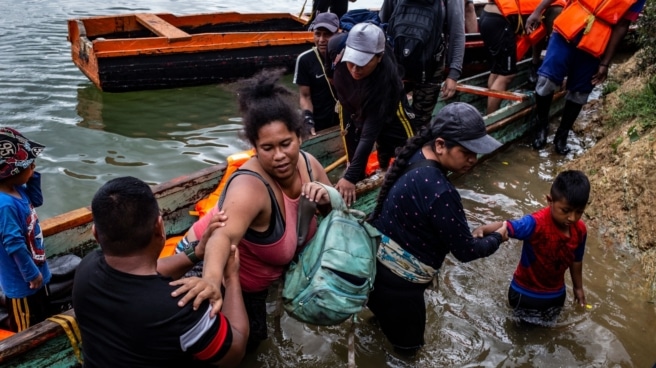

Refugees in the Darien jungle
The times when Spain was a refugee-giving country are not that far off.. Even closer to me are the cases of people who left this country in search of a better future. These are the youth of crisis, highly prepared but lacking opportunities, who have left their homes, families and friends to try to find a place where they can develop in decent conditions.
Today, just days after International Migrants Day, at least 280 million people live outside their countries of birth. Of these, 40 million cannot return to their country because their life, freedom or integrity are at risk: we classify them as a population in a situation of forced mobility. The rest are not so different from the Spanish youth affected by the crisis (besides the obvious distances, each person has his own story, and the reasons that motivate someone to migrate are complex and interconnected).
We live in a globalized, interconnected world, where what happens in one place affects another. This is clear from the example: trade agreements that allow the European Union to enter the shores of Senegal with their fishing fleets are closed, this ultimately destroys one of the main means of life in the country, and this year we have a record for the arrival of Senegalese to the Canary Islands. It’s not that simple, of course, but this is just an example.
That global inequality, especially in North-South terms, is a major determinant of migration is nothing new. Less obvious is the fact that gender inequality also has a major impact. Approximately half of migrants are women, but female migration is growing at a faster rate than male migration.. In addition to the risks and rights violations inherent in migration, they face gender-based violence wherever they go. In fact, this violence is exacerbated for women who migrate: gender influences the decision and reason for leaving, increases the severity of the experience along the way and at borders, and influences the experience of arrival and departure. Destination country.
“Gender-based violence against women is a feature common to all migration contexts. Violence that is not made visible, but rather is silenced and therefore not addressed or perpetuated over time.” Thus concludes Invisible. Migrant women at the border crossing, report published this year by the NGOs Entreculturas and Alboan, which precisely analyzes how gender-based violence affects women’s migration projects. The report draws on the stories of sub-Saharan women transiting through Morocco on their way to Europe, as well as testimony from organizations that accompany Latino migrants trying to reach the United States through Central America. With their experiences and demands, we wanted to condemn the fact that the consequences of violence against women follow the logic continuum spatial and temporal: it is common to both contexts and all stages of the migration route.
Another common element is the immigration policy of containment and national “security” with which the EU and US respond to mobility.. The policy was aimed at complicating the conditions and procedures for accessing and concluding agreements with countries of the South, delegating to them international and human obligations to people who are seeking protection or leaving a crisis behind, as our compatriots did not so many years ago. This logic turns countries, jungles, oceans and deserts into insurmountable borders of discrimination, violence and death that connect to the walls and fences that already served this function and grow ever higher.
The Migration and Asylum Pact betrays the Union’s own rules and principles by choosing a system of governance that favors expulsions, border violence, accelerated deportations and universal detention.
The latest product of this approach is the Pact on Migration and Asylum, which EU countries have just reached agreement on. An agreement that betrays the Union’s own rules and principles by choosing a system of migration management that favors expulsions, border violence, accelerated deportations and universal detention, even for girls and boys. And it doesn’t even specifically take into account women and the violence they face during their migration. This is not the treatment that Spanish exiles received when they needed it, and it is not the treatment that the EU, a supposed example of solidarity and hospitality, can be proud of.
The deal has not yet been closed. There is still time to redirect the final texts and their application to the solutions we propose from civil society: safe migration routes, respect for people, a human rights-based approach, gender and childhood in migration management. If they listen to us, if they listen to migrants and refugees, there is still time for EU leaders to decide something we can be proud of. To us and to all those people who, in other times, had to seek a better life in a faraway place.
Clara Esteban Rodriguez She works as a political advocacy technical specialist at Entreculturas.
Source: El Independiente